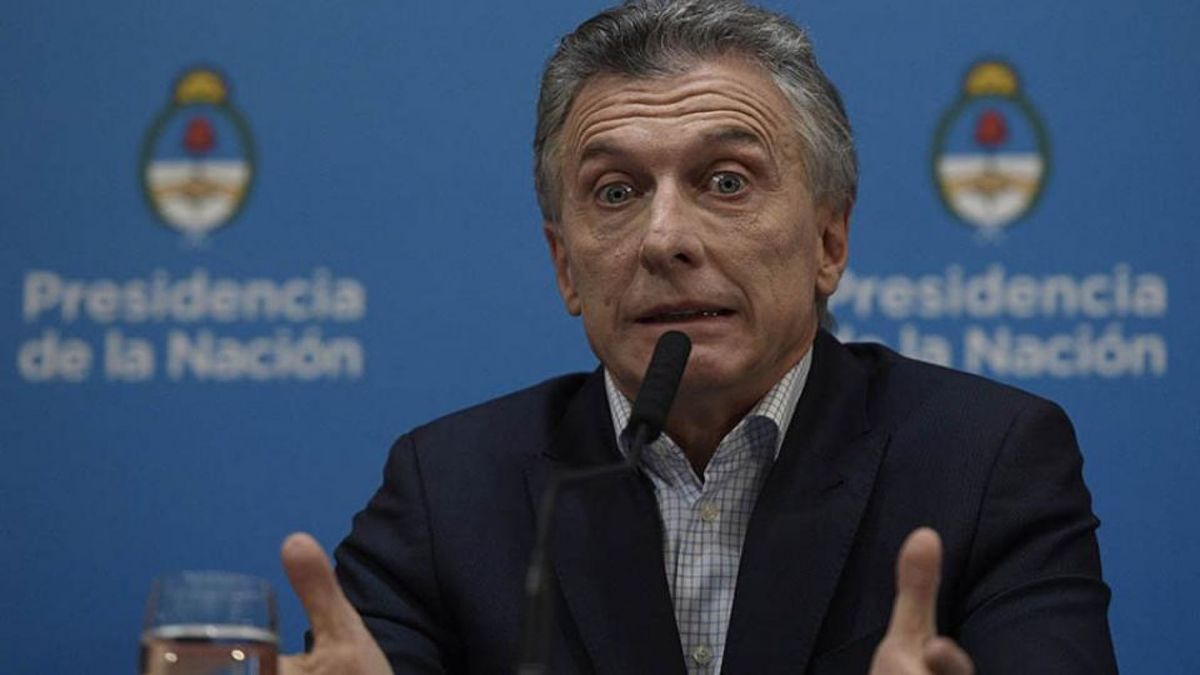The failure of Macri spread depressingly. The question we asked ourselves was whether the next government could succumb to the imposition of the IMF, agreeing to continue with the adjustment policy implemented by the Cambiemos government in 2018, or if an international lawsuit was going to be filed for irregularities in the granting of the more than 44 billion dollars from the IMF. For 4 consecutive years, the unawares in charge never understood the difference between campaigning and governing by disappointing the electorate.
If the next Peronist government insinuated – not to mention attempting a protest statement – it could cause a leap into the void, which would end with a national decomposition triggering the already existing stagflation that Mauricio Macri would bequeath to it. It is not imaginable that the pandemic fell on a country revealed against the IMF and, consequently, against all multilateral credit organizations.
The future government would face economic policy challenges that would require immediate assistance. And, these challenges should be addressed in a complete and articulated way so as not to crumble the economic, financial and social building. Restructuring the public debt was the main and first obstacle.
We knew that the incoming government would choose to negotiate with creditors, without the IMF. It could opt for a moderate monetary policy, trying to keep the expansion of money under control, with some fiscal effort to demonstrate willingness to pay, kick the game, or establish a “let’s see” policy, taking into account that if someone pulled the chain of bathroom with the lid open, microorganisms were going to spread left and right, in addition to all of us going down the drain.
Alberto Fernández would receive a disastrous exchange rate policy, with Macri’s super stocksand the Government should maintain it, given the impossibility of making it more flexible, with almost no net reserves in dollars and no international credit.
The next thing was to reach an agreement on prices and wages, with fiscal, monetary and exchange consistency, which would allow breaking the indexation and macrista inflationary inertiawhich had doubled the rate of inflation in just one year.
Public debt
As soon as they take office, they should leave quickly for New York, for the renegotiation of the debt with private creditors. There were not enough resources, not even to meet the debt maturities of the first five months of 2020.
A Uruguayan-style restructuring would not solve the root problem. It would be like delaying the disaster that Macri left, so that the growth of the economy would solve it, above the volume of the debt.
The most reasonable thing would have been for Macri to request a restructuring with a haircut, instead of going to the IMF to fit the problem to the next president.
It was difficult to think of a Peronist government that did not use fiscal stimuli to revive aggregate demand. Without stimulus, there is no chance of making extravagant debt sustainable with a collapsing economy. And without renegotiation there would be a default, with the detriment that falling into a new default, after the selective one of August 2019 and, before restructuring the private debt and with the IMF, would have much more serious consequences than a preventive restructuring.
Between November and May 2020, the Treasury should face financial needs in pesos for the equivalent of 70% of the monetary base. It would be urgent to restructure the debt in pesos already selectively defaulted by Macri-Lacunza (reprofiled) in order to reduce the issuance of fiscal origin. A delay in the restructuring would lead to excessive issuance that would destabilize any economic program.
The next government was conditioned to keep controlled the monetary issue, without having international credit. That is, without any recourse. It could not be issued for all simultaneously for the treasury, to buy trade surpluses and dismantle Leliq’s stock, in order to restore credit.
But to achieve a rapid renegotiation of the debt, it would be necessary to expose a path of fiscal consolidation and, in 2020, the government would have to exhibit primary balance or at least the same deficit before interest as in 2019 (-1.6% of GDP), committing itself to a rectification in the coming years.
An increase in the deficit would be essential to reactivate the economy, but negative for the renegotiation of the debt and for establishing the 2020 monetary program. The government could increase the tax pressure, but they would ask it to lower spending, for which the remanded would be transcendental change in the rule of adjustment of retirement and pensions.
Exchange controls should be maintained, nor could it be ruled out that a segmented market scheme be used: commercial and financial. The official exchange rate was a bit behind, if a consistent program was implemented, with moderate gaps, it could work, but it was very difficult to say a priori.
The exchange rate is the result of monetary, fiscal, debt, foreign trade, level of international reserves, expectations, and so on. If the income policy was accompanied by a consistent fiscal, monetary and exchange rate policy, an eventual social pact could function as a useful instrument to break the indexation. But without a consistent economic policy framework, it would barely survive and could have negative consequences.
Panic had seized all the citizens who were aware of the disaster that Mauricio Macri had left. We knew that with more than 40% poverty, we could fall a step and face another social chaos with violence, of the 2001 type. Could this catastrophe be avoided?
If the people were suffering with the adjustment imposed by the IMF, we had not yet seen what could happen if the new authorities were planted in rigid positions.
The media would be ready to offer the idea that Alberto Fernández and Cristina Kirchner constituted an irrational and irresponsible populist pairing, without mentioning that, on the contrary, from 2015 an unconscious ruled that doubled the debt/GDP ratio in only 4 years in office.
Unfortunately in Argentina in 2015, the weakest link was the voters. In the pre-Macrilandia, the experts in political marketing did everything necessary for the CEOs to stay in power, to impose fatal economic measures, based on a permanent fiction that supported the commitments of the lowest and most corrupt selfish instincts in Argentine history. .
Director of the Hope Foundation. https://fundacionesperanza.com.ar/ Graduate Professor UBA and Masters in private universities. Master in International Economic Policy, Doctor in Political Science, author of 6 books
Source: Ambito
David William is a talented author who has made a name for himself in the world of writing. He is a professional author who writes on a wide range of topics, from general interest to opinion news. David is currently working as a writer at 24 hours worlds where he brings his unique perspective and in-depth research to his articles, making them both informative and engaging.




